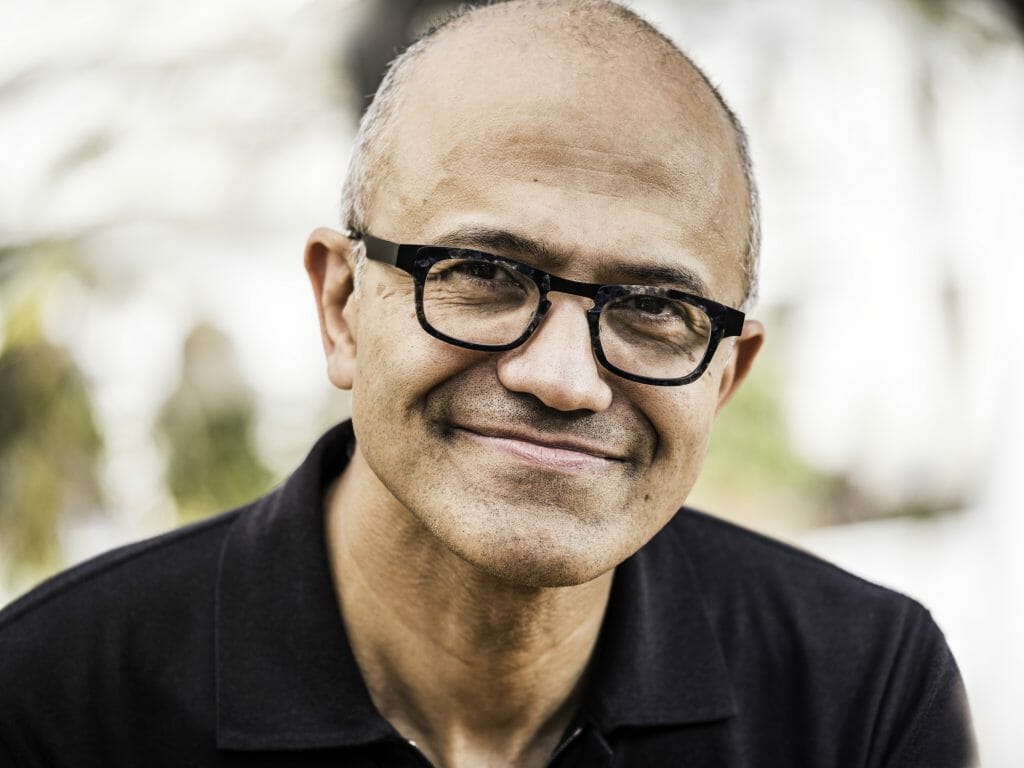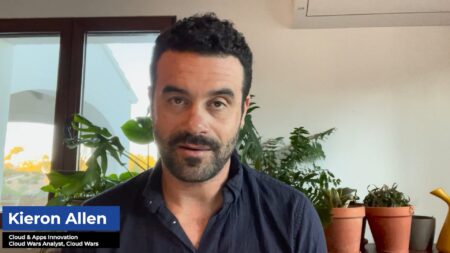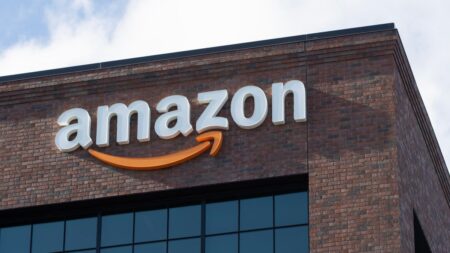As FedEx and Microsoft tackle the decidedly nontrivial goal of redefining commerce, FedEx becomes the latest in a string of global corporations that have paired up with Satya Nadella & Co. to totally transform not only themselves but entire industries.
That’s ambition and vision on a staggering scale. If Microsoft can pull off victories in even some of those world-changing initiatives, it will cement its position as the world’s pre-eminent enterprise-tech company.
Conversely, if it fails to achieve the wildly ambitious goals it has publicly declared, it will give its many and eager rivals huge opportunities to shove Microsoft out of the way and perform high-profile fixes while hammering at Microsoft’s reputation.
If I had to bet on either of those scenarios, I’d bet on the first one. In Nadella’s six years as Microsoft CEO, you would be hard-pressed to find any instance where he and his company have not met or exceeded every promise they’ve made.
And what’s striking about this wave of customer partnerships is the sheer audacity of each of the engagements. They include turning grocers into software companies, turning the world’s largest retailer into an omnichannel powerhouse, transforming car companies into mobility-technology innovators and accelerating cloud and AI journeys for some of the world’s largest companies.
And now, to top even those feats of derring-do, Microsoft is pairing with FedEx to transform the 3,000-year-old process of conducting commerce.
When digital transformation is more than a buzzword
In setting and pursuing those monumental tasks, Nadella and Microsoft are fundamentally changing the value promise in what enterprise customers can expect from their tech-vendor partners. In the context of such competitive gambits, how many CEOs can afford to say, “Yeah, that’s nice, but I think we’ll be just fine if we stay focused on using IT to cut costs.”
No, that play-not-to-lose approach is a disaster in our high-change world. This is no time for half-measures, timid declarations and the setting of comfortable goals. Decline is a choice, standing pat is a choice and pursuing highly disruptive change is a choice.
Microsoft is eagerly aligning itself with the disruptors, those businesses that want to go far beyond doing things a little better/faster/cheaper and instead want to remake themselves—and their entire categories.
In that context, let’s take a look at 10 dazzling customer engagements Microsoft has disclosed in the past 18 months or so. In these, we’ll see what sort of game plans the winners of tomorrow are mapping out.
Since the most recent of these Microsoft mega-deals is with FedEx, we’ll start there. After that, I’ve put together an admittedly subjective list of Microsoft’s 10 most-sweeping and high-impact cloud deals. They might not be the 10 largest deals, but in my view they each represent extraordinary vision, risk-taking and customer-centric thinking on the part of the world-shaking customers and Microsoft as well.
1. FedEx Surround redefines how the world looks at and conducts business.
In my analysis last week called Microsoft CEO Satya Nadella, FedEx CEO Fred Smith Discuss Huge Cloud Partnership, I wrote, “More than 40 years ago, back when ‘digital’ still referred to fingers rather than AI, FedEx founder and CEO Fred Smith said there will come a time when the information about a package delivery will be as important as the package itself. Now, in a deep partnership with Microsoft, FedEx is setting out to show that the information about not just a package but rather the entire global economy itself can redefine what commerce is and how businesses can optimize it.”
Smith and Nadella promise that as far-reaching and disruptive as FedEx Surround will be, it is only the first in several high-impact innovations that will result from their partnership.
2. Novartis declares that spending 10 years and $2 billion to develop a drug is no longer acceptable.
Hey, if you’re willing to try to redefine commerce, why not take a run at redefining medicine? Here’s Novartis CEO Vas Narasimhan describing his company’s alliance with Microsoft:
We’re in an era now with data science and digital where we can dramatically improve our ability to diagnose and discover new medicines and treatments. So I’m extremely excited to announce that Novartis will be partnering with Microsoft to create a new AI Innovation Lab… that will bring together the best in tech with the best in life sciences here at Novartis to accelerate drug discovery and drug development for patients all around the world… You have to go big to tackle the greatest challenges of our time. And I’m excited about this partnership and the possibilities it holds to help us reimagine medicine.
3. Disney looks to optimize its content-creation processes for our content-hungry world.
“By moving many of our production and postproduction workflows to the cloud, we’re optimistic that we can create content more quickly and efficiently around the world,” said Jamie Voris, CTO, The Walt Disney Studios. That objective has led Disney to sign a 5-year “innovation partnership to pilot new ways to create, produce and distribute content” on Azure.
4. AT&T pairs up for biggest cloud and AI deal in Microsoft history—possibly worth $2 billion.
Nadella highlighted this massive deal in an earnings call last year. Here’s how I wrote about it in Microsoft’s $50-Billion Moonshot: #1 Cloud Vendors Lays Out New Growth Plans:
Not including its networking business, AT&T agreed to move a huge set of workloads to Azure over the next few years in a deal that some reports have pegged at $2 billion. While that number’s unsubstantiated, Nadella said on the earnings call that it is the biggest cloud deal in Microsoft history: “the largest commercial deal that we’ve signed.” And as big an achievement as that is, it represents a threshold that Nadella said other customers are going to be willing to match. “We have line of sight to many more such deals,” he confirmed.
5. Chevron extended its partnership from the basics up to “innovation clouds” vital for oil and gas exploration.
Microsoft executive VP Jason Zander tells the story in a piece I wrote last year:
And then we move into the innovation. I actually think that Chevron, a top Fortune 50 company, fantastic partner, very forward-leaning company, and we started the same way. We did essentially kind of your enterprise-control plane, the software agility so that their engineers could move quicker, and to start off, just a few workloads. And then, all of a sudden, a few became hundreds, and the hockey stick just kicks in.
And once we got there, we started doing more innovation, to the point where we’re doing IoT for upstream oil and gas exploration, looking at seismic and other things, as well. So again, moving beyond kind of like your SAP portfolio and a bunch of those things, which were the first round, into this kind of innovation cloud.
6. Airbus commits to making vastly expanding aircraft production by deploying mixed-reality technology.
Airbus executive VP of engineering Jean-Brice Dumont says his company realized that to make greater numbers of higher-quality aircraft in a shorter amount of time, new technologies would be required. “Our challenge in the coming years is to manufacture more aircraft faster, and for that we need to enable our workers to be much better equipped and to be much more effective in what they do. We need to raise the bar,” Dumont says in a press release. “To face this challenge, we intend to make an intense use of mixed reality and that’s why we’ve partnered with Microsoft.”
RECOMMENDED READING
Microsoft CEO Satya Nadella, FedEx CEO Fred Smith Discuss Huge Cloud Partnership
Bill McDermott Unplugged: ServiceNow CEO Riffs on Oracle & SAP, Culture, Grateful Dead
Microsoft Flexes Trillion-Dollar Muscles: Competitors Sweat, Customers Swoon
Larry Ellison Picks Amazon’s Pocket—Again—as Cloud Momentum Builds
SAP Will Battle Microsoft & Google for Customer Control, Says CEO Christian Klein
Google and SAP Fusing Cloud and AI in Next-Gen Apps for Industries
7. BlackRock moves to the cloud to boost performance and user experience in a highly demanding market.
In financial services, rising expectations and demands from institutional investors and sophisticated wealth managers convinced BlackRock it needed to dramatically change its approach to infrastructure and networking.
From a Microsoft press release: “As the financial services industry looks to navigate ever-changing markets, institutions need integrated and scalable platforms to adapt to the growing complexity of managing data, risk management and advanced analytics to deliver innovative solutions to clients. To help support this trend, over time, the Microsoft Azure platform will enable BlackRock to accelerate innovation and collaboration between Aladdin and providers across the financial services ecosystem.”
8. Volkswagen AG, the world’s largest car maker, begins to remake itself for the digital future.
As with almost every one of these 10 examples, Volkswagen described the partnership with Microsoft as not merely a buyer-seller transaction but rather a fusion of the top capabilities from each company. The ultimate objective: transforming a car company into a digital-services-driven business.
From a Microsoft blog post: “I think this is an industry benchmark in terms of joining forces and putting the best of each company at the table and building the business together,” says Heiko Huettel, head of connected car for the Volkswagen Group.
9. Coca-Cola equips employees with digital solutions and data to drive great customer experiences.
In a fast-changing time, one of the best-known and most-successful brands in the world needed to modernize how it engages with hundreds of millions of consumers every day, as well as its own vast employee network. As part of a broad strategic partnership, the Coca-Cola Co. chose Azure, Dynamics 365 and Microsoft 365 to help “gain new insights from data across the enterprise, enabling a 360-degree view of the business, and providing enhanced customer and employee experiences,” a press release said.
10. Walmart retools every facet of its operations to meet evolving demands and behaviors of customers.
Early last year, in a piece called Inside Walmart’s Digital Transformation: 30 Tangible Steps on its Journey, I wrote the following:
Seven months ago, when Walmart and Microsoft signed a massive 5-year deal to drive sweeping modernization and change across the world’s largest company, CIO Clay Johnson told me his primary goal was to accelerate the digital transformation of a company with 2 million employees and daily revenue of about $137 million.
And this week, as Walmart released earnings results for Q4 and the full year, it disclosed a wide range of initiatives it has completed or that are underway as Walmart remakes every facet of its enormous global operations to enable intimate digital relationships with the tens of millions of people who shop at Walmart each week.
Final thought
As I said near the top, it’s not just the size and scope of these transformative deals that’s so impressive. Even more impressive is Microsoft’s ability to inspire these world-class companies to reimagine new and more-innovative futures for themselves and more-rewarding and richer experiences for their customers.
That, more than anything else, is why Microsoft is # 1 on the Cloud Wars Top 10.
Cloud Wars
Top 10 Rankings — May 25, 2020
| 1. Microsoft — As they flex trillion-$ muscles, competitors sweat, customers swoon |
| 2. Amazon — With world surging to cloud, Jassy & team reach $10B in Q1 cloud rev |
| 3. Salesforce — Check out Marc Benioff: Extraordinary Ascendancy of a Global Leader |
| 4. Google — Remains growth leader as Q1 cloud revenue jumps 52% to $2.8 billion |
| 5. SAP — Klein vows to battle Microsoft, Google Cloud for strategic customer control |
| 6. Oracle — Cloud momentum builds as Ellison once again picks Amazon’s pocket |
| 7. IBM — New CEO Krishna lays out strategy to beat Microsoft, Amazon, Google |
| 8. Workday — Will Bhusri post first $1-billion qrtr when Q1 earnings come out 5/27? |
| 9. ServiceNow — McDermott riffs on Oracle & SAP, culture and even Grateful Dead |
| 10. Adobe — Digital Experience business up 24% to $859M in Q4 |
Subscribe to the Cloud Wars Newsletter for in-depth analysis of the major cloud vendors from the perspective of business customers. It’s free, it’s exclusive and it’s great!








